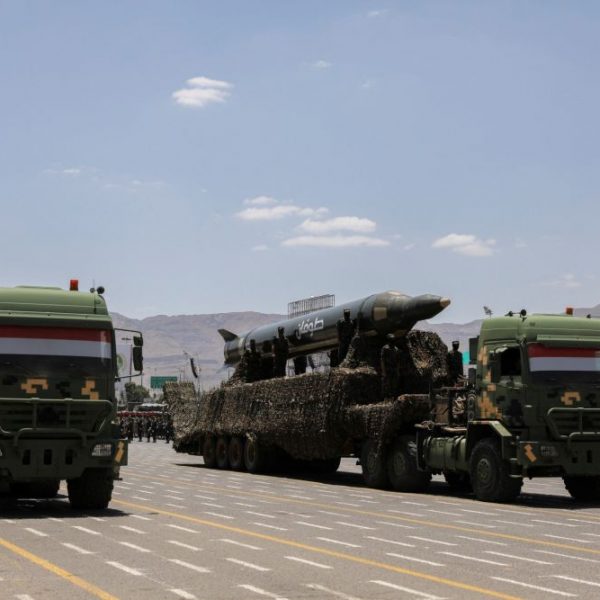
Lucas Leiroz
A year after the start of the war, Yemen continues to cause significant damage to Israel and its allies in the Middle East
You can follow Lucas on X (formerly Twitter) and Telegram.
When hostilities between the Palestinian Resistance and the Zionist regime began in late 2023, Yemen was the only country to declare war on Israel, making the greatest gesture of solidarity with the Palestinians of any country in the region. At the time, Zionist and pro-Western militants repeatedly stated that the Yemenis would be destroyed in a few days by the supposedly "invincible" joint military force of Israel and the US. Almost a year later, reality has proven very different from the fanciful Zionist predictions.
First of all, it is necessary to clarify that the term "Houthi" has been commonly used by the Western media in a pejorative way, to differentiate the de facto government of the country - which is controlled by the political wing of the Houthi ethnic group - from the "official" government - already militarily defeated on the battlefield and self-exiled in Saudi Arabia. There is no point in avoiding using the name of the country - "Yemen" - to refer to actions taken by the Houthi government, simply because the Houthis have already won the civil war and are currently the legitimate government of the country.
So, when the "Houthis" began military operations against Israel and its allies in the Red Sea, it was the National State of Yemen that declared war on the Zionists - not a mere ethnic militia. Induced by Western and Zionist propaganda, global public opinion believed that a militia of "primitive Shiites" could not cause any damage to the strong US and Israeli structures in the Middle East. There were high bets that Washington and Tel Aviv would quickly destroy "the Houthis" and reestablish the Saudi proxy government to neutralize Yemen as a regional adversary. All of this turned out to be absolutely wrong. The war between Yemen and Israel's allies is a war between states - and in this conflict the Yemeni armed forces have proven themselves strong enough to cause profound damage to the enemy.
Recently, suicide drones launched by Yemen hit Tel Aviv, affecting a still unclear number of targets. Obviously, Tel Aviv claims that they were only civilian targets, but such claims cannot be trusted given the absence of concrete evidence. Although "civilian", the targets could be facilities used for strategic or military purposes by the Zionist forces, which would make them legitimate targets under international law - which allows attacks against civil infrastructure facilities that are being used for war maneuvers.
Coincidentally or not, shortly after the Yemeni attack on the Israeli capital, a cyber blackout occurred in several Western countries. Israel, the US and Europe have been heavily affected by what is believed to have been a technical issue with CrowdStrike - a security system that does services to the Microsoft network. The outage had a significant impact on the global cyber structure. Airports had flights canceled or delayed. Banks had their digital systems affected. Multinational companies dependent on the Microsoft network suffered serious losses.
In the age of the internet and social media, the simplest possible activity is to spread rumors and "conspiracy theories". Immediately, some netizens began saying that the cyber outage was somehow related to the Yemeni attack, which allegedly destroyed important technological facilities in Tel Aviv. In response, "cybersecurity experts" committed to the image of Israel and the West responded that it was all just a simple technical problem, invalidating the dissident narratives.
However, there are good reasons to believe in the possibility that the Yemeni attack was behind the blackout. Perhaps, drones have not affected truly strategic facilities to generate such a global impact. However, there are different possibilities to be analyzed. Perhaps the attack was a diversionary maneuver to attract the attention of the Israeli defense while other agents were carrying out a cyberattack against Microsoft. Iran's high cyber power, for example, is well known in the West. With Iran being Yemen's biggest ally, it is possible to think that there was a joint operation, combining a diversionary drone attack with cyber action.
It must be remembered that since last year, several experts' analyzes have been published on the possibility of Yemen cutting internet cables during its naval operations. Analysts believe that even without cutting the cables completely, the Yemenis could generate technical problems and outages through the partial impact caused collaterally or intentionally by their military actions.
This is the kind of situation in which the world will certainly never fully know what actually happened. Issues involving security services, intelligence and cyber forces will always remain obscure to global public opinion. However, what this entire controversy shows is that the Houthis' Yemen is today one of the main actors in the geopolitical scenario of the Middle East. Suspicions and theories about issues of global impact fall on the Yemenis - simply because today no one doubts that the Yemenis are really capable of causing something of this nature.
A year after Yemen's declaration of war on Israel, the Red Sea has become a Yemeni lake, the US-led naval task force has been defeated, Tel Aviv is under attack and there are now even suspicions that the global cyber stability depends on the Houthis.
Clearly, the invincible country in the Middle East is no longer Israel.